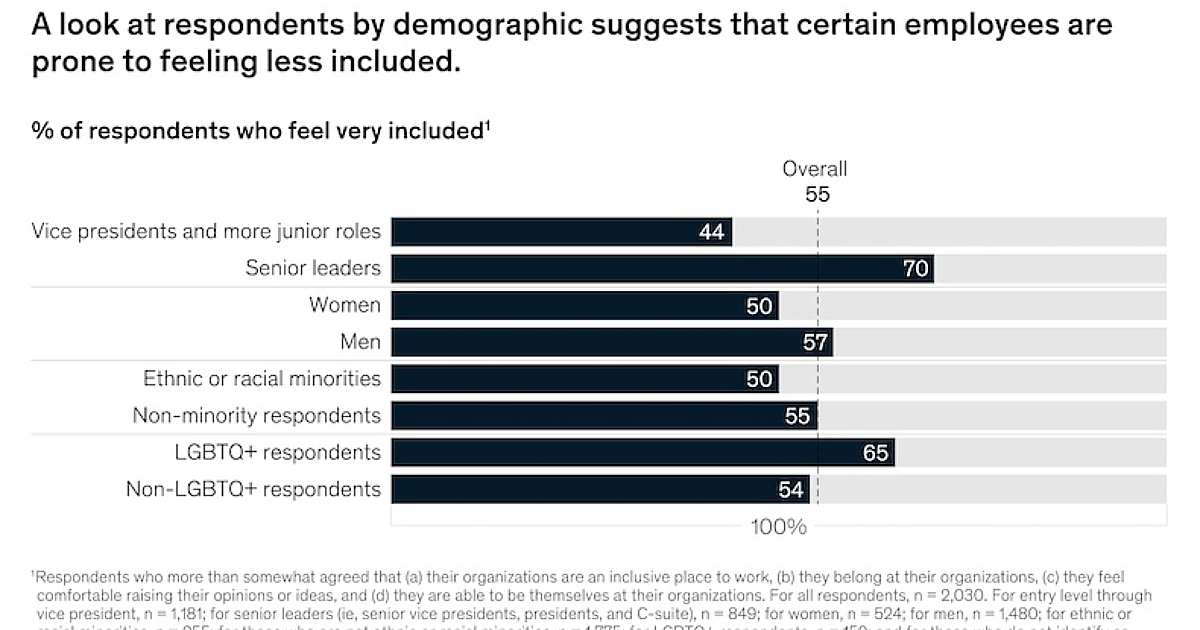
What 600 Marketing Ops Pros Say About the State of Their Profession
Marketing Operations is evolving into a key strategic function, driving data-driven decisions and career growth. Learn about its impact. Read more.

Leadership identity and actions are the key components to creating an inclusive workplace, according to research from McKinsey & Company. A survey conducted in 2019 among 2,030 respondents revealed that women, entry-level employees through vice-presidents, and ethnic and racial minorities are less likely to feel very included than their non-minority counterparts. However, LGBTQ+ respondents are more likely to feel included.
The survey also revealed that 44% of female respondents, 45% of ethnic or racial-minority respondents, and 50% of LGBTQ+ respondents have chosen not to pursue or accept a position due to feeling the organization was not inclusive. Four key factors associated with employees feeling a strong sense of inclusion at their workplace were identified: diverse and inclusive leadership, meritocracy and initiatives to increase fairness, sponsorship, and access to senior leaders.
The report was based on data from the survey and 26 organizational practices and employee experiences. It is important to note that the survey sample for the LGBTQ+ group skewed toward more senior employees.

Creating More-Inclusive Workplaces: Four Key Factors
Don't worry ... it's FREE!
Marketing Operations is evolving into a key strategic function, driving data-driven decisions and career growth. Learn about its impact. Read more.
Discover how servant leadership and the Yes Approach combine to inspire collaboration and empower teams for success. Read more.
Discover how neuroscience empowers leaders to build trust, manage stress, and drive motivation. Improve project outcomes today. Read more.
What are the primary job responsibilities of marketing operations professionals? Do those responsibilities vary by team and company size? To find out, researchers surveyed more than 600 marketing ops specialists.
Learn how PMO practices streamline CRM campaigns, enhancing efficiency and engagement, and explore ways to optimize resources effectively. Read more.
What will B2B marketers in the United States be increasing their spend on in the coming years? Which tactics and strategies do they think will grow in importance? To find out, researchers conducted a survey and analyzed marketing spend data.